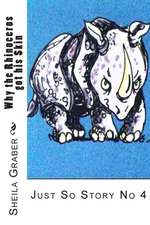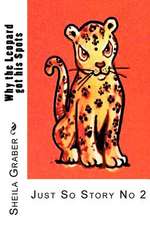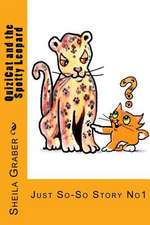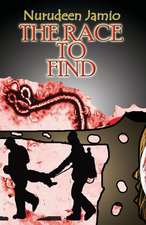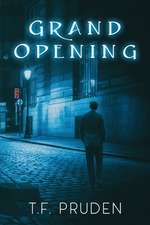Kim: Everyman's Library Classics & Contemporary Classics
Autor Rudyard Kipling, John Bayleyen Limba Engleză Hardback – 28 feb 1995 – vârsta de la 10 până la 13 ani
Published in 1901, after its author had permanently moved away from India, Kipling’s masterpiece is marked by a maturity of perspective on the land of his birth, combined with breathtakingly brilliant descriptions of the fascinating lost world of the British Raj. Kim has enthralled generations of readers both by the exuberance of its storytelling and its vital and unforgettable portrait of the India of bazaars and sacred rivers, holy men and rogues, ancient customs and colonial society.
(Book Jacket Status: Jacketed)
Din seria Everyman's Library Classics & Contemporary Classics
-
 Preț: 239.56 lei
Preț: 239.56 lei -
 Preț: 181.46 lei
Preț: 181.46 lei -
 Preț: 155.68 lei
Preț: 155.68 lei -
 Preț: 152.82 lei
Preț: 152.82 lei -
 Preț: 291.22 lei
Preț: 291.22 lei -
 Preț: 156.56 lei
Preț: 156.56 lei -
 Preț: 140.00 lei
Preț: 140.00 lei -
 Preț: 155.68 lei
Preț: 155.68 lei -
 Preț: 176.42 lei
Preț: 176.42 lei -
 Preț: 154.68 lei
Preț: 154.68 lei -
 Preț: 187.87 lei
Preț: 187.87 lei - 8%
 Preț: 562.39 lei
Preț: 562.39 lei -
 Preț: 169.01 lei
Preț: 169.01 lei -
 Preț: 253.70 lei
Preț: 253.70 lei -
 Preț: 129.73 lei
Preț: 129.73 lei -
 Preț: 159.81 lei
Preț: 159.81 lei -
 Preț: 132.00 lei
Preț: 132.00 lei -
 Preț: 194.89 lei
Preț: 194.89 lei -
 Preț: 253.60 lei
Preț: 253.60 lei -
 Preț: 286.18 lei
Preț: 286.18 lei -
 Preț: 129.71 lei
Preț: 129.71 lei -
 Preț: 277.35 lei
Preț: 277.35 lei -
 Preț: 192.29 lei
Preț: 192.29 lei -
 Preț: 180.40 lei
Preț: 180.40 lei -
 Preț: 121.47 lei
Preț: 121.47 lei -
 Preț: 254.91 lei
Preț: 254.91 lei -
 Preț: 177.11 lei
Preț: 177.11 lei -
 Preț: 233.19 lei
Preț: 233.19 lei -
 Preț: 155.90 lei
Preț: 155.90 lei -
 Preț: 144.97 lei
Preț: 144.97 lei -
 Preț: 217.78 lei
Preț: 217.78 lei -
![Les Miserables [With Ribbon Marker]](https://i2.books-express.ro/bs/9780375403170/les-miserables-with-ribbon-marker.jpg) Preț: 283.50 lei
Preț: 283.50 lei -
 Preț: 172.02 lei
Preț: 172.02 lei -
 Preț: 162.49 lei
Preț: 162.49 lei -
 Preț: 218.89 lei
Preț: 218.89 lei -
 Preț: 179.05 lei
Preț: 179.05 lei -
 Preț: 158.19 lei
Preț: 158.19 lei - 8%
 Preț: 439.96 lei
Preț: 439.96 lei -
 Preț: 155.09 lei
Preț: 155.09 lei -
 Preț: 141.27 lei
Preț: 141.27 lei -
 Preț: 181.28 lei
Preț: 181.28 lei -
 Preț: 156.31 lei
Preț: 156.31 lei -
 Preț: 138.16 lei
Preț: 138.16 lei -
 Preț: 141.48 lei
Preț: 141.48 lei -
 Preț: 142.52 lei
Preț: 142.52 lei -
 Preț: 126.43 lei
Preț: 126.43 lei -
 Preț: 201.04 lei
Preț: 201.04 lei -
 Preț: 142.93 lei
Preț: 142.93 lei -
 Preț: 183.26 lei
Preț: 183.26 lei
Preț: 141.92 lei
Nou
Puncte Express: 213
Preț estimativ în valută:
27.16€ • 29.52$ • 22.83£
27.16€ • 29.52$ • 22.83£
Carte disponibilă
Livrare economică 31 martie-14 aprilie
Preluare comenzi: 021 569.72.76
Specificații
ISBN-13: 9780679443605
ISBN-10: 0679443606
Pagini: 360
Dimensiuni: 133 x 210 x 27 mm
Greutate: 0.51 kg
Editura: Everyman's Library
Seria Everyman's Library Classics & Contemporary Classics
ISBN-10: 0679443606
Pagini: 360
Dimensiuni: 133 x 210 x 27 mm
Greutate: 0.51 kg
Editura: Everyman's Library
Seria Everyman's Library Classics & Contemporary Classics
Extras
Chapter I
Oh ye who tread the Narrow Way
By Tophet-flare to Judgment Day,
Be gentle when the heathen pray
To Buddha at Kamakura!
He sat, in defiance of municipal orders, astride the gun Zam- Zammah on her brick platform opposite the old Ajaib-Gher—the Wonder House, as the natives call the Lahore Museum. Who hold Zam-Zammah, that “fire-breathing dragon,” hold the Punjab; for the great green-bronze piece is always first of the conqueror’s loot.
There was some justification for Kim,—he had kicked Lala Dinanath’s boy off the trunnions,—since the English held the Punjab and Kim was English. Though he was burned black as any native; though he spoke the vernacular by preference, and his mother-tongue in a clipped uncertain sing-song; though he consorted on terms of perfect equality with the small boys of the bazar; Kim was white—a poor white of the very poorest. The half-caste woman who looked after him (she smoked opium, and pretended to keep a second-hand furniture shop by the square where the cheap cabs wait) told the missionaries that she was Kim’s mother’s sister; but his mother had been nursemaid in a colonel’s family and had married Kimball O’Hara, a young colour-sergeant of the Mavericks, an Irish regiment. He afterwards took a post on the Sind, Punjab, and Delhi railway, and his regiment went home without him. The wife died of cholera in Ferozepore, and O’Hara fell to drink and loafing up and down the line with the keen-eyed three-year-old baby. Societies and chaplains anxious for the child, tried to catch him, but O’Hara drifted away, till he came across the woman who took opium and learned the taste from her, and died as poor whites die in India. His estate at death consisted of three papers—one he called his “ne varietur” because those words were written below his signature thereon, and another his “clearance-certificate.” The third was Kim’s birth-certificate. Those things, he was used to say, in his glorious opium hours, would yet make little Kimball a man. On no account was Kim to part with them, for they belonged to a great piece of magic—such magic as men practised over yonder behind the Museum, in the big blue and white Jadoo-Gher—the Magic House, as we name the Masonic Lodge. It would, he said, all come right some day, and Kim’s horn would be exalted between pillars—monstrous pillars—of beauty and strength. The Colonel himself, riding on a horse, at the head of the finest regiment in the world, would attend to Kim,—little Kim that should have been better off than his father. Nine hundred first-class devils, whose god was a Red Bull on a green field, would attend to Kim, if they had not forgotten O’Hara—poor O’Hara that was gang-foreman on the Ferozepore line. Then he would weep bitterly in the broken rush chair on the verandah. So it came about after his death that the woman sewed parchment, paper, and birth-certificate into a leather amulet-case which she strung round Kim’s neck.
“And some day,” she said, confusedly remembering O’Hara’s prophecies, “there will come for you a great Red Bull on a green field, and the Colonel riding on his tall horse, yes, and”—dropping into English—“nine hundred devils.”
“Ah,” said Kim, “I shall remember. A Red Bull and a Colonel on a horse will come, but first, my father said, come the two men making ready the ground for these matters. That is how, my father said, they always did; and it is always so when men work magic.”
If the woman had sent Kim up to the local Jadoo-Gher with those papers, he would, of course, have been taken over by the Provincial Lodge and sent to the Masonic Orphanage in the Hills; but what she had heard of magic she distrusted. Kim, too, held views of his own. As he reached the years of indiscretion, he learned to avoid missionaries and white men of serious aspect who asked who he was, and what he did. For Kim did nothing with an immense success. True, he knew the wonderful walled city of Lahore from the Delhi Gate to the outer Fort Ditch; was hand in glove with men who led lives stranger than anything Haroun al Raschid dreamed of; and he lived in a life wild as that of the Arabian Nights, but missionaries and secretaries of charitable societies could not see the beauty of it. His nickname through the wards was “Little Friend of all the World”; and very often, being lithe and inconspicuous, he executed commissions by night on the crowded housetops for sleek and shiny young men of fashion. It was intrigue, of course,—he knew that much, as he had known all evil since he could speak,—but what he loved was the game for its own sake—the stealthy prowl through the dark gullies and lanes, the crawl up a water-pipe, the sights and sounds of the women’s world on the flat roofs, and the headlong flight from housetop to housetop under cover of the hot dark. Then there were holy men, ash-smeared faquirs by their brick shrines under the trees at the riverside, with whom he was quite familiar—greeting them as they returned from begging-tours, and, when no one was by, eating from the same dish. The woman who looked after him insisted with tears that he should wear European clothes—trousers, a shirt, and a battered hat. Kim found it easier to slip into Hindu or Mohammedan garb when engaged on certain businesses. One of the young men of fashion—he who was found dead at the bottom of a well on the night of the earthquake—had once given him a complete suit of Hindu kit, the costume of a low-caste street boy, and Kim stored it in a secret place under some baulks in Nila Ram’s timber-yard, beyond the Punjab High Court, where the fragrant deodar logs lie seasoning after they have driven down the Ravee. When there was business or frolic afoot, Kim would use his properties, returning at dawn to the verandah, all tired out from shouting at the heels of a marriage procession, or yelling at a Hindu festival. Sometimes there was food in the house, more often there was not, and Kim went out again to eat with his native friends.
As he drummed his heels against Zam-Zammah he turned now and again from his king-of-the-castle game with little Chota Lal and Abdullah the sweetmeat-seller’s son, to make a rude remark to the native policeman on guard over rows of shoes at the Museum door. The big Punjabi grinned tolerantly: he knew Kim of old. So did the water-carrier, sluicing water on the dry road from his goat-skin bag. So did Jawahir Singh, the Museum carpenter, bent over new packing-cases. So did everybody in sight except the peasants from the country, hurrying up to the Wonder House to view the things that men made in their own province and elsewhere. The Museum was given up to Indian arts and manufactures, and anybody who sought wisdom could ask the curator to explain.
“Off! Off! Let me up!” cried Abdullah, climbing up Zam- Zammah’s wheel.
“Thy father14 was a pastry-cook, Thy mother stole the ghi,” sang Kim. “All Mussalmans fell off Zam-Zammah long ago!”
“Let me up!” shrilled little Chota Lal in his gilt-embroidered cap. His father was worth perhaps half a million sterling, but India is the only democratic land in the world.
“The Hindus fell off Zam-Zammah too. The Mussalmans pushed them off. Thy father was a pastry-cook——”
He stopped; for there shuffled round the corner, from the roaring Motee Bazar,16 such a man as Kim, who thought he knew all castes, had never seen. He was nearly six feet high, dressed in fold upon fold of dingy stuff like horse-blanketing, and not one fold of it could Kim refer to any known trade or profession. At his belt hung a long open-work iron pencase and a wooden rosary such as holy men wear. On his head was a gigantic sort of tam-o’-shanter. His face was yellow and wrinkled, like that of Fook Shing, the Chinese bootmaker in the bazar. His eyes turned up at the corners and looked like little slits of onyx.
“Who is that?” said Kim to his companions.
“Perhaps it is a man,” said Abdullah, finger in mouth, staring.
“Without doubt,” returned Kim; “but he is no man of India that I have ever seen.”
“A priest, perhaps,” said Chota Lal, spying the rosary. “See! He goes into the Wonder House!”
“Nay, nay,” said the policeman, shaking his head. “I do not understand your talk.” The constable spoke Punjabi. “Oh, The Friend of all the World, what does he say?”
“Send him hither,” said Kim, dropping from Zam-Zammah, flourishing his bare heels. “He is a foreigner, and thou art a buffalo.”
The man turned helplessly and drifted towards the boys. He was old, and his woollen gaberdine still reeked of the stinking artemisia of the mountain passes.
“O Children, what is that big house?” he said in very fair Urdu.
“The Ajaib-Gher, the Wonder House!” Kim gave him no title—such as Lala or Mian. He could not divine the man’s creed.
“Ah! The Wonder House! Can any enter?”
“It is written above the door—all can enter.”
“Without payment?”
“I go in and out. I am no banker,” laughed Kim.
“Alas! I am an old man. I did not know.” Then, fingering his rosary, he half turned to the Museum.
“What is your caste? Where is your house? Have you come far?” Kim asked.
“I came by Kulu—from beyond the Kailas—but what know you? From the hills where”—he sighed—“the air and water are fresh and cool.”
“Aha! Khitai (a Chinaman),” said Abdullah proudly. Fook Shing had once chased him out of his shop for spitting at the joss above the boots.
“Pahari (a hillman),” said little Chota Lal.
“Aye, child—a hillman from hills thou’lt never see. Didst hear of Bhotiyal (Tibet)? I am no Khitai, but a Bhotiya (Tibetan), since you must know—a lama—or, say a guru in your tongue.”
“A guru from Tibet,” said Kim. “I have not seen such a man. They be Hindus in Tibet, then?”
“We be followers of the Middle Way, living in peace in our lamasseries, and I go to see the Four Holy Places before I die. Now do you, who are children, know as much as I do who am old.” He smiled benignantly on the boys.
“Hast thou eaten?”
He fumbled in his bosom and drew forth a worn wooden begging-bowl. The boys nodded. All priests of their acquaintance begged.
“I do not wish to eat yet.” He turned his head like an old tortoise in the sunlight. “Is it true that there are many images in the Wonder House of Lahore?” He repeated the last words as one making sure of an address.
“That is true,” said Abdullah. “It is full of heathen b¯uts. Thou also art an idolator.”
“Never mind him,” said Kim. “That is the Government’s house and there is no idolatry in it, but only a Sahib with a white beard. Come with me and I will show.”
“Strange priests eat boys,” whispered Chota Lal.
“And he is a stranger and a b¯ut-parast (idolator),” said Abdullah, the Mohammedan.
Kim laughed. “He is new. Run to your mothers’ laps, and be safe. Come!”
From the Trade Paperback edition.
Oh ye who tread the Narrow Way
By Tophet-flare to Judgment Day,
Be gentle when the heathen pray
To Buddha at Kamakura!
He sat, in defiance of municipal orders, astride the gun Zam- Zammah on her brick platform opposite the old Ajaib-Gher—the Wonder House, as the natives call the Lahore Museum. Who hold Zam-Zammah, that “fire-breathing dragon,” hold the Punjab; for the great green-bronze piece is always first of the conqueror’s loot.
There was some justification for Kim,—he had kicked Lala Dinanath’s boy off the trunnions,—since the English held the Punjab and Kim was English. Though he was burned black as any native; though he spoke the vernacular by preference, and his mother-tongue in a clipped uncertain sing-song; though he consorted on terms of perfect equality with the small boys of the bazar; Kim was white—a poor white of the very poorest. The half-caste woman who looked after him (she smoked opium, and pretended to keep a second-hand furniture shop by the square where the cheap cabs wait) told the missionaries that she was Kim’s mother’s sister; but his mother had been nursemaid in a colonel’s family and had married Kimball O’Hara, a young colour-sergeant of the Mavericks, an Irish regiment. He afterwards took a post on the Sind, Punjab, and Delhi railway, and his regiment went home without him. The wife died of cholera in Ferozepore, and O’Hara fell to drink and loafing up and down the line with the keen-eyed three-year-old baby. Societies and chaplains anxious for the child, tried to catch him, but O’Hara drifted away, till he came across the woman who took opium and learned the taste from her, and died as poor whites die in India. His estate at death consisted of three papers—one he called his “ne varietur” because those words were written below his signature thereon, and another his “clearance-certificate.” The third was Kim’s birth-certificate. Those things, he was used to say, in his glorious opium hours, would yet make little Kimball a man. On no account was Kim to part with them, for they belonged to a great piece of magic—such magic as men practised over yonder behind the Museum, in the big blue and white Jadoo-Gher—the Magic House, as we name the Masonic Lodge. It would, he said, all come right some day, and Kim’s horn would be exalted between pillars—monstrous pillars—of beauty and strength. The Colonel himself, riding on a horse, at the head of the finest regiment in the world, would attend to Kim,—little Kim that should have been better off than his father. Nine hundred first-class devils, whose god was a Red Bull on a green field, would attend to Kim, if they had not forgotten O’Hara—poor O’Hara that was gang-foreman on the Ferozepore line. Then he would weep bitterly in the broken rush chair on the verandah. So it came about after his death that the woman sewed parchment, paper, and birth-certificate into a leather amulet-case which she strung round Kim’s neck.
“And some day,” she said, confusedly remembering O’Hara’s prophecies, “there will come for you a great Red Bull on a green field, and the Colonel riding on his tall horse, yes, and”—dropping into English—“nine hundred devils.”
“Ah,” said Kim, “I shall remember. A Red Bull and a Colonel on a horse will come, but first, my father said, come the two men making ready the ground for these matters. That is how, my father said, they always did; and it is always so when men work magic.”
If the woman had sent Kim up to the local Jadoo-Gher with those papers, he would, of course, have been taken over by the Provincial Lodge and sent to the Masonic Orphanage in the Hills; but what she had heard of magic she distrusted. Kim, too, held views of his own. As he reached the years of indiscretion, he learned to avoid missionaries and white men of serious aspect who asked who he was, and what he did. For Kim did nothing with an immense success. True, he knew the wonderful walled city of Lahore from the Delhi Gate to the outer Fort Ditch; was hand in glove with men who led lives stranger than anything Haroun al Raschid dreamed of; and he lived in a life wild as that of the Arabian Nights, but missionaries and secretaries of charitable societies could not see the beauty of it. His nickname through the wards was “Little Friend of all the World”; and very often, being lithe and inconspicuous, he executed commissions by night on the crowded housetops for sleek and shiny young men of fashion. It was intrigue, of course,—he knew that much, as he had known all evil since he could speak,—but what he loved was the game for its own sake—the stealthy prowl through the dark gullies and lanes, the crawl up a water-pipe, the sights and sounds of the women’s world on the flat roofs, and the headlong flight from housetop to housetop under cover of the hot dark. Then there were holy men, ash-smeared faquirs by their brick shrines under the trees at the riverside, with whom he was quite familiar—greeting them as they returned from begging-tours, and, when no one was by, eating from the same dish. The woman who looked after him insisted with tears that he should wear European clothes—trousers, a shirt, and a battered hat. Kim found it easier to slip into Hindu or Mohammedan garb when engaged on certain businesses. One of the young men of fashion—he who was found dead at the bottom of a well on the night of the earthquake—had once given him a complete suit of Hindu kit, the costume of a low-caste street boy, and Kim stored it in a secret place under some baulks in Nila Ram’s timber-yard, beyond the Punjab High Court, where the fragrant deodar logs lie seasoning after they have driven down the Ravee. When there was business or frolic afoot, Kim would use his properties, returning at dawn to the verandah, all tired out from shouting at the heels of a marriage procession, or yelling at a Hindu festival. Sometimes there was food in the house, more often there was not, and Kim went out again to eat with his native friends.
As he drummed his heels against Zam-Zammah he turned now and again from his king-of-the-castle game with little Chota Lal and Abdullah the sweetmeat-seller’s son, to make a rude remark to the native policeman on guard over rows of shoes at the Museum door. The big Punjabi grinned tolerantly: he knew Kim of old. So did the water-carrier, sluicing water on the dry road from his goat-skin bag. So did Jawahir Singh, the Museum carpenter, bent over new packing-cases. So did everybody in sight except the peasants from the country, hurrying up to the Wonder House to view the things that men made in their own province and elsewhere. The Museum was given up to Indian arts and manufactures, and anybody who sought wisdom could ask the curator to explain.
“Off! Off! Let me up!” cried Abdullah, climbing up Zam- Zammah’s wheel.
“Thy father14 was a pastry-cook, Thy mother stole the ghi,” sang Kim. “All Mussalmans fell off Zam-Zammah long ago!”
“Let me up!” shrilled little Chota Lal in his gilt-embroidered cap. His father was worth perhaps half a million sterling, but India is the only democratic land in the world.
“The Hindus fell off Zam-Zammah too. The Mussalmans pushed them off. Thy father was a pastry-cook——”
He stopped; for there shuffled round the corner, from the roaring Motee Bazar,16 such a man as Kim, who thought he knew all castes, had never seen. He was nearly six feet high, dressed in fold upon fold of dingy stuff like horse-blanketing, and not one fold of it could Kim refer to any known trade or profession. At his belt hung a long open-work iron pencase and a wooden rosary such as holy men wear. On his head was a gigantic sort of tam-o’-shanter. His face was yellow and wrinkled, like that of Fook Shing, the Chinese bootmaker in the bazar. His eyes turned up at the corners and looked like little slits of onyx.
“Who is that?” said Kim to his companions.
“Perhaps it is a man,” said Abdullah, finger in mouth, staring.
“Without doubt,” returned Kim; “but he is no man of India that I have ever seen.”
“A priest, perhaps,” said Chota Lal, spying the rosary. “See! He goes into the Wonder House!”
“Nay, nay,” said the policeman, shaking his head. “I do not understand your talk.” The constable spoke Punjabi. “Oh, The Friend of all the World, what does he say?”
“Send him hither,” said Kim, dropping from Zam-Zammah, flourishing his bare heels. “He is a foreigner, and thou art a buffalo.”
The man turned helplessly and drifted towards the boys. He was old, and his woollen gaberdine still reeked of the stinking artemisia of the mountain passes.
“O Children, what is that big house?” he said in very fair Urdu.
“The Ajaib-Gher, the Wonder House!” Kim gave him no title—such as Lala or Mian. He could not divine the man’s creed.
“Ah! The Wonder House! Can any enter?”
“It is written above the door—all can enter.”
“Without payment?”
“I go in and out. I am no banker,” laughed Kim.
“Alas! I am an old man. I did not know.” Then, fingering his rosary, he half turned to the Museum.
“What is your caste? Where is your house? Have you come far?” Kim asked.
“I came by Kulu—from beyond the Kailas—but what know you? From the hills where”—he sighed—“the air and water are fresh and cool.”
“Aha! Khitai (a Chinaman),” said Abdullah proudly. Fook Shing had once chased him out of his shop for spitting at the joss above the boots.
“Pahari (a hillman),” said little Chota Lal.
“Aye, child—a hillman from hills thou’lt never see. Didst hear of Bhotiyal (Tibet)? I am no Khitai, but a Bhotiya (Tibetan), since you must know—a lama—or, say a guru in your tongue.”
“A guru from Tibet,” said Kim. “I have not seen such a man. They be Hindus in Tibet, then?”
“We be followers of the Middle Way, living in peace in our lamasseries, and I go to see the Four Holy Places before I die. Now do you, who are children, know as much as I do who am old.” He smiled benignantly on the boys.
“Hast thou eaten?”
He fumbled in his bosom and drew forth a worn wooden begging-bowl. The boys nodded. All priests of their acquaintance begged.
“I do not wish to eat yet.” He turned his head like an old tortoise in the sunlight. “Is it true that there are many images in the Wonder House of Lahore?” He repeated the last words as one making sure of an address.
“That is true,” said Abdullah. “It is full of heathen b¯uts. Thou also art an idolator.”
“Never mind him,” said Kim. “That is the Government’s house and there is no idolatry in it, but only a Sahib with a white beard. Come with me and I will show.”
“Strange priests eat boys,” whispered Chota Lal.
“And he is a stranger and a b¯ut-parast (idolator),” said Abdullah, the Mohammedan.
Kim laughed. “He is new. Run to your mothers’ laps, and be safe. Come!”
From the Trade Paperback edition.
Recenzii
“A work of positive genius, as radiant all over with intellectual light as the sky of a frosty night
with stars.”
—The Atlantic Monthly
From the Trade Paperback edition.
with stars.”
—The Atlantic Monthly
From the Trade Paperback edition.
Textul de pe ultima copertă
The tale of an Irish boy raised as an Indian in imperial India. It is the story of his coming of age in a world of high adventure.
Notă biografică
Rudyard Kipling was born in Bombay, India to British parents on December 30, 1865. In 1871, Rudyard and his sister, Trix, aged three, were left to be cared for by a couple in Southsea, England. Five years passed before he saw his parents again. His sense of desertion and despair were later expressed in his story “Baa Baa, Black Sheep” (1888), in his novelThe Light that failed(1890), and his autobiography,Something of Myself(1937). As late as 1935 Kipling still spoke bitterly of the “House of Desolation” at Southsea: “I should like to burn it down and plough the place with salt.”
At twelve he entered a minor public school, the United Services College at Westward Ho, North Devon. InStalkyand CO.(1899) the myopic Beetle is a self-caricature, and the days at Westward Ho are recalled with mixed feelings. At sixteen, eccentric and literary, Kipling sailed to India to become a journalist. His Indian experiences led to seven volumes of stories, includingSoldiers Three(1888) andWee Willie Winkie(1888).
At twenty-four he returned to England and quickly tuned into a literary celebrity. In London he became close friends with an American, (Charles) Wolcott Balestier, with whom he collaborated on what critics called a “dime store novel.” Wolcott died suddenly in 1891, and a few weeks later Kipling married Wolcott’s sister, Caroline. The newlyweds settled in Brattleboro, Vermont, where Kipling wroteThe Jungle Book(1895), and most ofCaptains Courageous(1897). By this time Kipling’s popularity and financial success were enormous.
In 1899 the Kiplings settled in Sussex, England, where he wrote some of his best books:Kim(1901),Just So Stories(1902), andPuck of Pooks Hill(1906). In 1907 he received the Nobel Prize for literature. By the time he died, on January 18 1936, critical opinion was deeply divided about his writings, but his books continued to be read by thousands, and such unforgettable poems and stories as ”Gunga Din,” “If,” “The Man Who Would Be King,” and “Rikki-Tikki-Tavi” have lived on in the consciousness of succeeding generations.
At twelve he entered a minor public school, the United Services College at Westward Ho, North Devon. InStalkyand CO.(1899) the myopic Beetle is a self-caricature, and the days at Westward Ho are recalled with mixed feelings. At sixteen, eccentric and literary, Kipling sailed to India to become a journalist. His Indian experiences led to seven volumes of stories, includingSoldiers Three(1888) andWee Willie Winkie(1888).
At twenty-four he returned to England and quickly tuned into a literary celebrity. In London he became close friends with an American, (Charles) Wolcott Balestier, with whom he collaborated on what critics called a “dime store novel.” Wolcott died suddenly in 1891, and a few weeks later Kipling married Wolcott’s sister, Caroline. The newlyweds settled in Brattleboro, Vermont, where Kipling wroteThe Jungle Book(1895), and most ofCaptains Courageous(1897). By this time Kipling’s popularity and financial success were enormous.
In 1899 the Kiplings settled in Sussex, England, where he wrote some of his best books:Kim(1901),Just So Stories(1902), andPuck of Pooks Hill(1906). In 1907 he received the Nobel Prize for literature. By the time he died, on January 18 1936, critical opinion was deeply divided about his writings, but his books continued to be read by thousands, and such unforgettable poems and stories as ”Gunga Din,” “If,” “The Man Who Would Be King,” and “Rikki-Tikki-Tavi” have lived on in the consciousness of succeeding generations.












